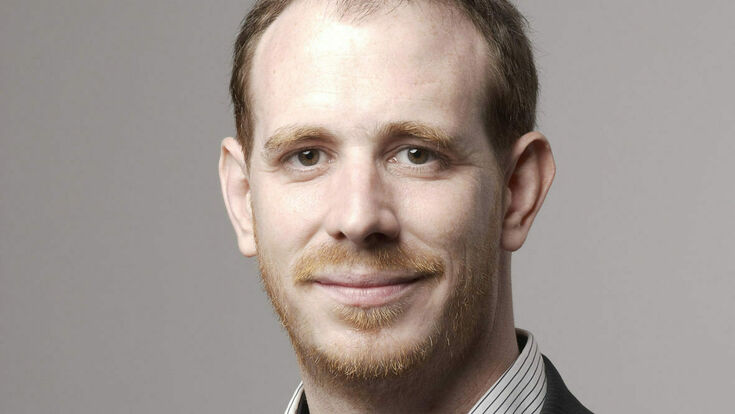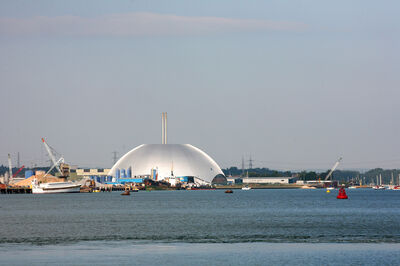Veolia's bold plan : Leading the path to net zero

Veolia has set a goal to reach net zero by 2050. Can you walk us through the main components of this plan and the anticipated impact on your operations?
Veolia’s net-zero ambition is aligned with the Paris Agreement’s 1.5°C trajectory, aiming for a 50% reduction in scope 1 and 2 emissions and a 30% reduction in scope 3 emissions by 2032, compared to 2021 levels, ultimately achieving net zero by 2050.
By 2030, we also plan to help customers erase 20 million tonnes of CO₂ annually. This ambitious plan leverages mature solutions, including two Veolia flagship programmes. Our €1.6 billion Coal Exit Programme aims to replace coal with low-carbon energy in Europe by 2030. Meanwhile, a €250 million Methane Capture Programme is set to achieve 80% methane capture at landfill site.
Complementary efforts include boosting energy efficiency, transitioning to renewables, removing plastics from incinerators and advancing carbon capture technologies. Veolia’s leadership is reinforced by dual validation of its climate commitments by SBTi and Moody’s.
How does Veolia adapt its strategy to the sector-specific challenges it faces, such as water, energy and waste management?
In February 2024, Veolia launched its 2024‒2027 strategic programme, GreenUp, to drive growth across the waste, water and energy sectors. The plan focuses on strongholds like solid waste management, district heating and municipal water while boosting areas such as hazardous waste management, water technologies and energy solutions like bioenergy and efficiency. These activities can work stand-alone but are even stronger when combined. And this is one of Veolia’s biggest differentiating values.
Through innovation and stakeholder dialogue, GreenUp targets ecological transformation by decarbonising (net-zero GHG), regenerating resources (net-zero water) and depolluting (net-zero pollutants). Its mission is simple: reconcile human progress with environmental protection.
In February 2024, Veolia launched its 2024‒2027 strategic programme, GreenUp, to drive growth across the waste, water and energy sectors. The plan focuses on strongholds like solid waste management, district heating and municipal water while boosting areas such as hazardous waste management, water technologies and energy solutions like bioenergy and efficiency.
What role do AI and digitalisation play in Veolia’s net-zero strategy?
Digitalisation and AI are key accelerators for our company, aiming to double operational efficiency. We are going from assisted intelligence to augmented intelligence for our employees, our customers and our activities. With the Hubgrade solution.
Veolia is the first company to put artificial intelligence at the service of ecological transformation. It is where digital and AI meet human expertise for performance and sustainability. We want to increase energy efficiency, recycling rates and water sobriety and reuse for example. We are targeting operational excellence across our activities. Nothing less.
Are there any recent technological advancements or pilot projects on decarbonisation that Veolia is particularly excited about?
Veolia drives innovation through initiatives like its landfill gas-to-hydrogen project, evolving from a 10 kg H₂/day pilot in France to a 250 kg H₂/day demonstration plant in Hong Kong. With scaling potential up to 20x, this project builds multiple expertise and paves the way for deployment across Veolia’s 110 landfills.
Another highlight is the 5th generation heat and cold network at Saclay, France, providing heat and 13 GWh of cooling annually to a university and innovation hub from low-carbon sources.
Most recently, Veolia has launched a world first: a residual cold recovery solution at the Enagás LNG terminal in Barcelona, saving 42,000 t CO2/year.
Carbon capture solutions are integral parts of the plan. Can you provide examples of how these are being deployed across Veolia’s operations?
Veolia is exploring CCUS as part of its decarbonisation strategy, complementing defossilisation and combustion efficiency in incinerators.
Veolia is conducting technology trials with pilot projects in France, USA and Asia, testing amine capture, hazardous waste mineralisation and metal-organic frameworks (MOFs). Additionally, the company is evaluating the commercial feasibility of CCUS through studies like the 2024 PreFEED in Marchwood, UK, which assesses technical and business models for suitable sites. Veolia is also demonstrating operational success with India’s first CCUS plant for Tata Steel, capturing 5 tonnes of CO₂ per day.

How is Veolia advancing water technologies and hazardous waste treatment in fields such as lithium recovery and PFAS treatment?
Veolia’s advanced technologies recover lithium from mining brines, reducing water use by 50%, cutting extraction times by 100% and achieving 90% efficiency. By producing battery-grade lithium, Veolia supports the electric mobility transition while enhancing sustainability in mining operations.
With its BeyondPFAS offer, Veolia delivers comprehensive solutions to detect, treat and safely dispose of PFAS. Having treated over 8 million cubic meters of contaminated water globally, Veolia combines mobile units and permanent systems to ensure regulatory compliance and tailored local solutions.
What are some of the biggest challenges Veolia faces in implementing its net-zero strategy? What lessons has Veolia learned in its journey that might benefit other companies or sectors?
Meeting net-zero carbon requires strong leadership. Veolia is integrating CO₂ management into its culture, operations and strategy, with measures such as CO₂ reporting, employee training and investments in large-scale programmes such as the Coal Exit initiative.
Veolia has dedicated €200 million to research, through initiatives such as strategic demonstration plants, energy efficiency programmes and partnerships with venture capital funds to support start-ups. In this respect, the Group has just announced a €30 million commitment to a French fund aimed at accelerating the emergence of new decarbonisation technologies in Europe.
Collaboration with industries, RTOs and networks such as CO2 Value Europe and EIT Raw Materials also accelerates innovation and market-ready solutions.
How does Veolia’s GreenUp programme aim to fill the "missing link" in global ecological transformation
As the world moves towards carbon neutrality, challenges like biodiversity loss, water scarcity and resource depletion remain. Veolia tackles these by investing €4 billion over the programme in innovative solutions like decarbonised energy from waste and addressing PFAS pollution.
Veolia drives ecological transformation primarily through innovation, partnerships and collaboration with communities.
In cooperation with Veolia.

